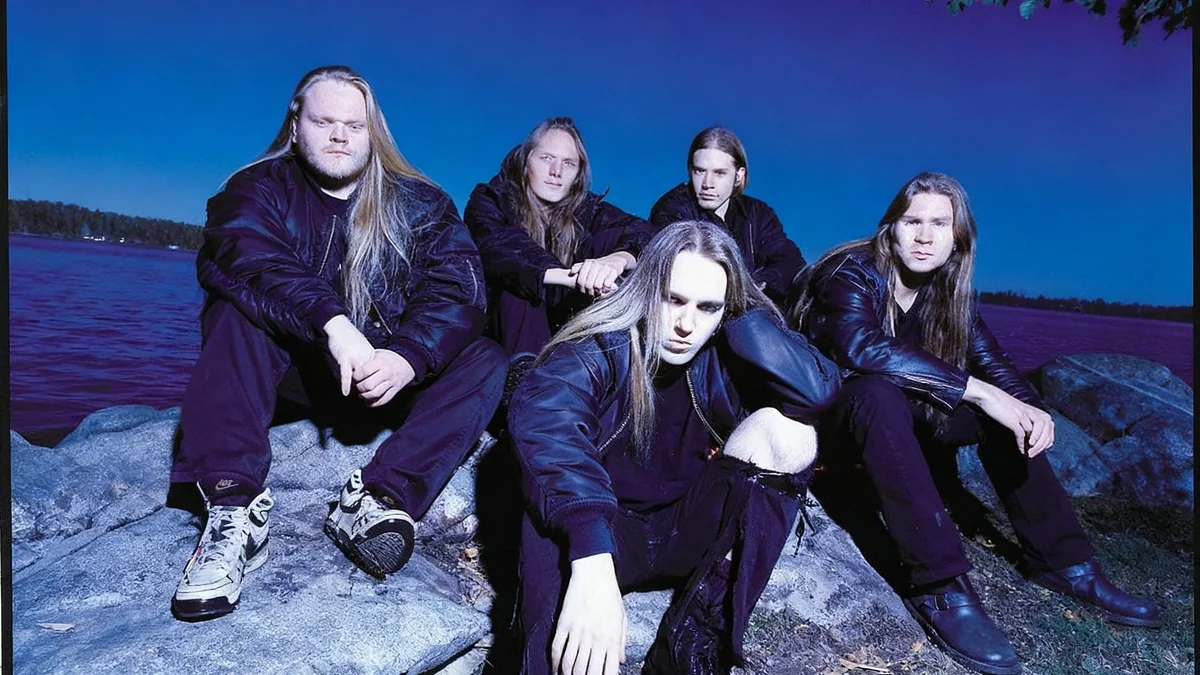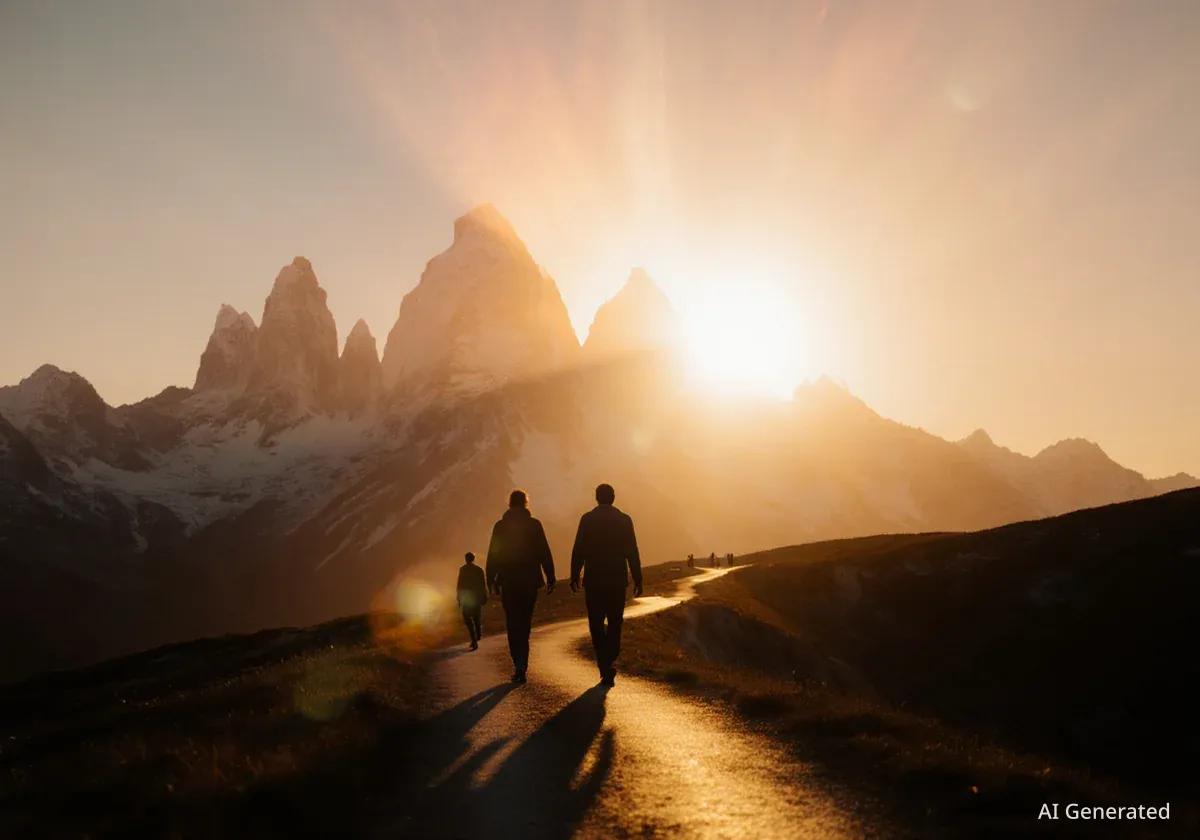Rock legends The Who are embarking on their final North American tour, signaling the conclusion of a six-decade career. This tour commemorates 60 years of influential music, iconic performances, and a lasting impact on popular culture. Fans across the continent will have a final opportunity to see the band perform live as they close this significant chapter.
Key Takeaways
- The Who is undertaking a farewell North American tour.
- This tour marks the band's 60th anniversary.
- Roger Daltrey and Pete Townshend are the two surviving original members.
- The band has influenced generations of musicians and fans.
The Who's Six-Decade Journey Concludes
The Who, one of the most enduring rock bands in history, is wrapping up its touring career in North America. This farewell tour brings to an end an extraordinary 60-year run that began in 1964. The band, originally formed by Roger Daltrey, Pete Townshend, John Entwistle, and Keith Moon, became known for its powerful live shows and innovative music.
Their journey has been marked by significant moments, from smashing guitars on stage to creating groundbreaking rock operas. These elements cemented their status as pioneers in rock music. The current lineup features original members Roger Daltrey and Pete Townshend, who continue to lead the band.
Band Formation
The Who officially formed in 1964. The original members were Roger Daltrey (vocals), Pete Townshend (guitar, songwriting), John Entwistle (bass), and Keith Moon (drums).
Early Years and Rise to Fame
In the mid-1960s, The Who emerged from London's vibrant music scene. Their early singles like 'My Generation' captured the rebellious spirit of the youth. The band quickly gained a reputation for energetic and often destructive live performances. Pete Townshend's guitar smashing and Keith Moon's explosive drumming became signature elements of their concerts.
According to music historians, their raw energy and unique sound distinguished them from many of their contemporaries. They were central figures in the Mod movement, influencing fashion and lifestyle as well as music.
"The Who's early performances were unlike anything audiences had seen before. They pushed boundaries both musically and visually," a music critic noted in a 1967 review.
Iconic Performances and Albums
The band released several highly acclaimed albums throughout the late 1960s and 1970s. Their rock opera 'Tommy' (1969) was a landmark achievement, showcasing their artistic ambition. This album was later adapted into a film and a Broadway musical, further extending its cultural reach. Another notable work, 'Quadrophenia' (1973), explored themes of youth identity and social alienation, resonating with a generation.
Concerts at major festivals, including the Isle of Wight Festival in 1969, further solidified their global appeal. These performances introduced their music to massive audiences and established them as a premier live act.
Challenges and Evolution
The Who faced significant challenges throughout their career, including the untimely deaths of two original members. Drummer Keith Moon passed away in 1978. Bassist John Entwistle died in 2002. These losses were profound, but Daltrey and Townshend continued to perform and record, honoring their bandmates' legacies.
The band's sound evolved over the decades, incorporating new musical styles while retaining their core identity. They consistently explored complex narratives and musical structures in their work. This adaptability allowed them to maintain relevance across different eras of rock music.
The Who's Broadway Legacy
The band's rock opera Tommy saw a revival on Broadway in March 2024. Pete Townshend and Lorin Latarro attended the opening night, highlighting the enduring appeal of their 1969 work.
Recent Tours and Public Engagements
In recent years, Roger Daltrey and Pete Townshend have continued to tour extensively. Their 'The Who Hits Back!' tour in 2022 saw them perform across North America, including a stop in Austin, Texas. These tours often feature orchestral backing, adding a new dimension to their classic songs.
The band has also participated in major public events. They performed at the closing ceremony of the London 2012 Olympic Games, reaching a global television audience. In 2010, they headlined the Super Bowl XLIV halftime show in Miami Gardens, Florida, further demonstrating their enduring appeal to mass audiences.
- July 29, 2017: Began a residency at The Colosseum at Caesars Palace in Las Vegas.
- March 18, 2016: Signed a guitar at the Memorial Sloan Kettering Cancer Center in New York City.
- June 28, 2015: Performed at the Glastonbury Festival in England.
- August 12, 2012: Performed at the London 2012 Olympic Games closing ceremony.
- February 7, 2010: Headlined the Super Bowl XLIV halftime show.
The Enduring Impact of The Who
The Who's influence extends far beyond their music. They helped define the sound and style of rock and roll for generations. Many musicians cite them as a primary inspiration. Their innovative use of synthesizers, concept albums, and theatrical stage presence set new standards for live performance.
As they prepare for their final North American shows, the band's legacy remains strong. Their songs continue to be played on radio and streamed online, attracting new fans. The farewell tour serves as a tribute to their remarkable journey and the indelible mark they have left on the music world. It is a chance for fans to celebrate six decades of rock history.




